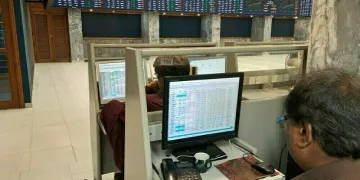By Marc Frank
HAVANA (Reuters) – Cuba has imposed new restrictions on imports by state-run companies, ordering them to obtain a letter of credit from the central bank for purchases above the equivalent of $100,000, as the Communist-run island struggles with a shortage of cash and mounting commercial debt.
Central bank resolution 19/2018, which took effect this month, states that the measure is aimed at ensuring companies have the resources to meet their foreign obligations and to prevent that “the foreign debt continues growing.”
Cuba’s government frequently regulates demand for imports using access to credit and foreign currency, and other mechanisms.
A western banker with extensive experience of working with Cuba said the measure would lead to a short-term plunge in imports and to slower contracting of supplies.
The banker, who requested anonymity, said it might also shut down non-essential and insolvent companies.
“Other Latin American countries have adopted similar measures in the past, for example Argentina, but those were market economies not state dominated ones,” the banker said by telephone.
U.S. embargoed-Cuba has suffered from the implosion of ally Venezuela’s economy and oil industry, as well as lower commodity prices and dwindling domestic production following cuts in electricity, fuel allocation and other inputs to state companies beginning in 2016.
Cuban exports of goods and services fell from $17.8 billion in 2014 to $13.6 billion in 2016 while imports slipped from $13.9 billion to $10.3 billion, according to the government.
Cuba last reported its debt at $18.9 billion in 2014.
Since then President Raul Castro’s government has restructured much of its official debt, but according to diplomats and foreign businessmen state companies are overdue in paying more than $1 billion to suppliers.
The central bank resolution says authorities need to “exercise adequate control” over debt. To obtain a letter of credit, companies must prove they “have adopted measures to insure they can meet their obligations at the time of payment,” it said.
Pavel Vidal, a former Cuban central bank monetary specialist, said state-run banks would now function as an additional filter to ensure companies were solvent and could pay for imports.
He said Cuba had experienced similar payments problems every decade since the 1980s.
“They have figured out that the government can renegotiate the foreign debt, but if the state companies do a poor job managing their finances they face the same problem over and over again,” said Vidal, who teaches at Universidad Javeriana Cali in Colombia.
Fusion Media or anyone involved with Fusion Media will not accept any liability for loss or damage as a result of reliance on the information including data, quotes, charts and buy/sell signals contained within this website. Please be fully informed regarding the risks and costs associated with trading the financial markets, it is one of the riskiest investment forms possible.
Source: Investing.com



























